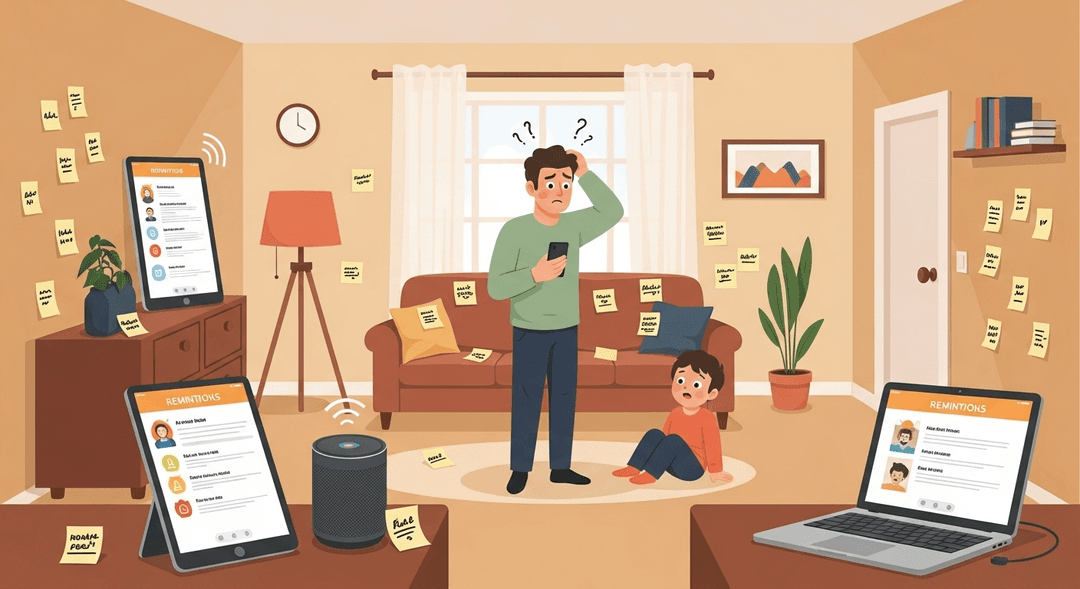Be Mindful of 'Cognitive Offloading' (Over-reliance on Others/Tech for Thinking)
Ever found yourself asking Alexa what your own child’s name is? Welcome to the Cognitive Offloading Olympics, where the gold medal goes to whoever can outsource the most brainpower to sticky notes and smart gadgets. If you’ve ever tried to remember where you put your phone while using your phone to look for your keys, this one’s for you. Let’s talk about how to keep your brain at least partially online, even when your calendar and tech are doing their best to make you obsolete.
Staying mentally engaged (instead of handing off every task to tech or your spouse) keeps your memory sharper, helps you problem-solve on the fly, and models resilience for your kids—plus, your brain loves a little workout. For kids, seeing you think through things (instead of just asking Google) teaches them how to reason and adapt, which is basically the parenting jackpot.
How to do it
-
Pick one thing each day to remember without using technology. For example, try recalling your child’s favorite stuffed animal or what time their nap happens.
-
Narrate your thinking out loud. For instance, say things like, “Let’s see, if we leave now, we’ll get to the park before meltdown o’clock.” This helps reinforce memory through verbalization.
-
Set limits on notifications. By reducing digital interruptions, you give your brain a chance to strengthen its memory skills.
-
When you do need help, use technology as a backup rather than your primary method. Think of it as using training wheels—not a self-driving bike.
Tips:
- Start with small, manageable things to remember each day.
- Make it a habit to talk through your plans or decisions out loud.
- Turn off non-essential notifications on your devices.
- Only check your phone or digital reminders after you’ve tried to recall the information yourself.
- Celebrate small wins to encourage continued progress.
